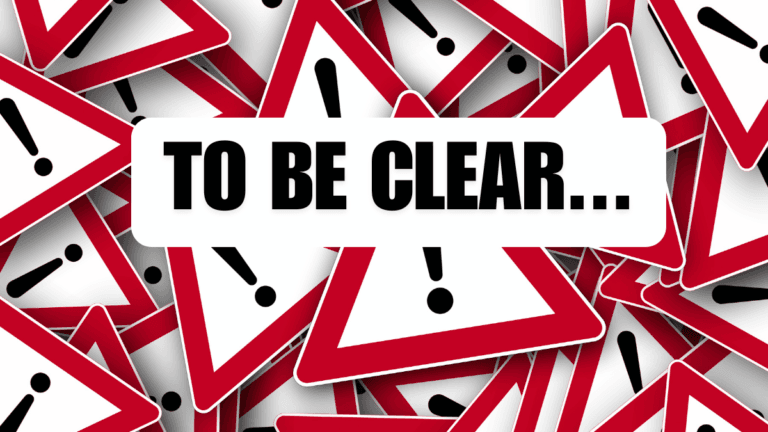Financial Power Is Power — How Financial Authority Transforms Women’s Lives
Follow my blog with BloglovinMoney changes things. That’s not a metaphor — it’s a fact. When a woman has control over her own money, she holds the keys to choices, boundaries, and exits. Especially exits.
Follow my blog with BloglovinThe Hidden Chains of Financial Dependence
For decades, women have been taught to be grateful for what they’re given — a roof, a ring, a man who “provides.” But that provision often comes with strings. Or ropes. Or silence.
The financial dependency trap is one of the most powerful tools of control in toxic, dysfunctional, and narcissistic relationships. And it’s wildly effective. When you control the money, you control the options. You control the pace. You control how much food she can purchase at the grocery store. You control her options. You control her world.
99% of domestic violence cases involve financial abuse. That’s not fluff. That’s data from the Allstate Foundation. Control over bank accounts. Forbidden access to credit. No knowledge of bills or budgeting. Even being kept off the lease.
Financial abuse may not leave physical bruises, but it leaves scars. Scars that may take years to rebuild.
Related: Pick Me Culture How It Has Slowed Women’s Progress
How Men Built Generational Wealth Off the Backs of Women
Let’s not pretend this happened by chance. For centuries, men have built dynasties, fortunes, and family legacies on the unpaid labor, emotional labor, and sacrificed dreams of women.
Women raised the children, kept the household running, held down jobs, supported their husbands’ ambitions — and got nothing in writing. No ownership. No equity. No safety net.
Men inherited land while daughters were married off. Men advanced careers while women stayed home — not because they lacked ambition, but because ambition wasn’t a luxury they were allowed to have. And while women were doing all the work behind the curtain, men stood on the stage and got paid.
Unpaid domestic labor, largely done by women, is estimated to contribute over $10 trillion to the global economy annually — and yet it doesn’t show up in GDP. It doesn’t build credit. It doesn’t earn retirement. It’s invisible labor that built very visible wealth — but not for the women doing it.
The generational wealth gap isn’t just about wages — it’s about systemic erasure. Women’s contributions built the foundation, but men took the deed.
This is why women reclaiming financial power is more than personal. It’s historical correction.
There’s a popular claim that women in the U.S. couldn’t open a bank account without a husband’s permission until the 1960s — but this is largely unverified. What we do know is that systemic barriers and social norms often kept women from managing their own finances independently. The legal milestone that explicitly granted women the right to access credit in their own name came with the Equal Credit Opportunity Act of 1974. The Equal Credit Opportunity Act, which finally gave women the right to apply for credit in their own name, wasn’t passed until 1974.
Let that sink in.
Your mom or grandmother may have been alive during a time when she needed a man’s signature to take out a loan. The National Women’s History Museum lays this out plainly — women’s financial independence is very recent.
So no, the system wasn’t broken. It was built like this.
| Book Title | Author | Focus | Link |
|---|---|---|---|
| CRUSH Your Money Goals | Bernadette Joy | Fast-track debt freedom and build wealth with a mindset-focused plan tailored to women of color | View on Amazon |
| Smart Women Finish Rich | David Bach | Timeless financial principles for women to achieve independence and long-term wealth | View on Amazon |
| Get Good with Money | Tiffany Aliche (The Budgetnista) | 10-step plan for holistic financial wellness, budgeting, saving, and credit repair | View on Amazon |
| You Are a Badass at Making Money | Jen Sincero | Mindset-shifting and motivational guide to overcoming fear and earning more | View on Amazon |
| Money Honey | Rachel Richards | Simple and sassy approach to personal finance, budgeting, and passive income | View on Amazon |
When Women Make Money, They Make Moves
When a woman controls her income, she controls the script. She doesn’t need to beg, barter, or tolerate. She can say no without fear of sleeping in her car.
She can leave. She can stay. She can choose. And that’s the difference.
The wisdom women gain through business, jobs, or side hustles teaches more than just budgeting — it teaches boundaries. Leadership. Self-worth. That kind of clarity doesn’t come from dependency.
And here’s the kicker — it’s not just personal. It’s political.
From Personal Empowerment to Collective Change
Money is power.
Not metaphorically. Literally. And when women earn it, they wield it.
She owns her home outright — no landlord, no compromises. She doesn’t rely on anyone to provide for her — not a man, not a system. She’s not clipping coupons to stretch meals. She builds her own credit, negotiates her own contracts, and claims her peace without compromise.
She buys property if she wants. She lives alone without explanation. She travels solo, upgrades when she feels like it, and splurges without asking permission. She doesn’t just survive — she chooses how to live. She doesn’t marry because she has to. She marries if she wants to. Or not at all.
She doesn’t live to serve — she lives to lead.
She funds causes, sure — but also startups. She invests in her future, her freedom, and her fulfillment. She hires who she wants, fires who she needs to, and walks into boardrooms with equity, not excuses.
She owns her mornings, her mindset, and her money.
Something that society has tried to take from her for decades.
More women are doing this every day — building lives that are bold, independent, and fully funded by their own brilliance.
Sabrina Ramonov is on Fire
“I was tired of building things for other people. Now I build what I want, when I want, how I want.” — Sabrina Ramonov, founder of Blotato, a solo-founded AI automation platform that helps users generate faceless video content across social media — using systems she designed from scratch.
Before that, she built and sold a tech startup called Qurious, an AI-powered natural language processing company focused on real-time voice assistance. She sold it to Pegasystems in a cash-and-stock deal valued at over $10 million — a move that didn’t just fund her next venture — it gave her total financial freedom.
Related: Financial Freedom After Narcissistic Abuse
And what did she do with it?
She didn’t buy yachts. She built tools. She used her money to multiply impact, not just income. She now runs Blotato, a solo-founded AI automation platform that helps users generate faceless video content across social media — using systems she designed from scratch. She teaches women how to build fully automated, AI-powered video systems to generate revenue — without showing their face, and without giving up their freedom. Because women with money don’t just spend — they build.
Women like Sabrina are redefining the tech space — not just participating, but innovating. She created an AI system that automates faceless video content across platforms and shares free tools so others can break in. No gatekeeping. No permission asked.
And she’s not alone. Women-owned businesses are growing at double the rate of male-owned businesses in the U.S.
Homeownership among single women is also climbing. According to the National Association of Realtors, single women now make up nearly 20% of homebuyers — almost twice the rate of single men. Why? Because they’re not waiting. Not for marriage. Not for permission.
And women in tech? They’re building the future. CEOs like Whitney Wolfe Herd (founder of Bumble) and Anne Wojcicki (founder of 23andMe) have reshaped industries by centering user agency, autonomy, and empowerment.
Women who earn become women who influence. They challenge systems. They don’t need to explain why they’re not settling for less.
They shift economies. They redefine womanhood. They put their names on deeds, brands, and blueprints.
According to the McKinsey Global Institute, advancing gender equality in the U.S. workforce could add $4.3 trillion to the GDP by 2025.
Women who control wealth don’t just shape their futures — they reshape the world.
So yes, money is power. Not in a “greedy boss girl” way. In a liberation way. In a self-determined, unapologetic, nothing-held-back kind of way.
Related: Why Women Are Breaking Traditional Gender Roles to Thrive
Final Thoughts
You don’t need millions. You need options. A laptop, a skill someone will pay for. Start there.
Because when a woman has her own money, she can say, “I’m done.” And mean it.
And that’s a power no one can take away.
And let’s be honest — this conversation matters more now than ever. At a time when women’s rights are being quietly and not-so-quietly rolled back in courtrooms and legislatures, the importance of financial independence cannot be overstated. We won’t unpack all of that here — that’s another article. But let this be said: having your own money is not just freedom, it’s protection.
So let’s ask the question we’re never supposed to ask:
Why did the men hoard all the wealth?
The answer isn’t just about greed. It’s about control. And now, women are taking it back — one paycheck, one investment, one unapologetic decision at a time.
So let’s ask the question we’re never supposed to ask:
Why did the men hoard all the wealth?
The answer isn’t just about greed. It’s about control. And now, women are taking it back — one paycheck, one investment, one unapologetic decision at a time.
This post contains affiliate links in which we may receive a commission.
Financial power Financial power Financial power Financial power Financial power Financial power Financial power Financial power Financial power Financial power Financial power Financial power Financial power Financial power Financial power Financial power Financial power Financial power Financial power Financial power Financial power Financial power Financial power Financial power Financial power Financial power Financial power Financial power Financial power Financial power






